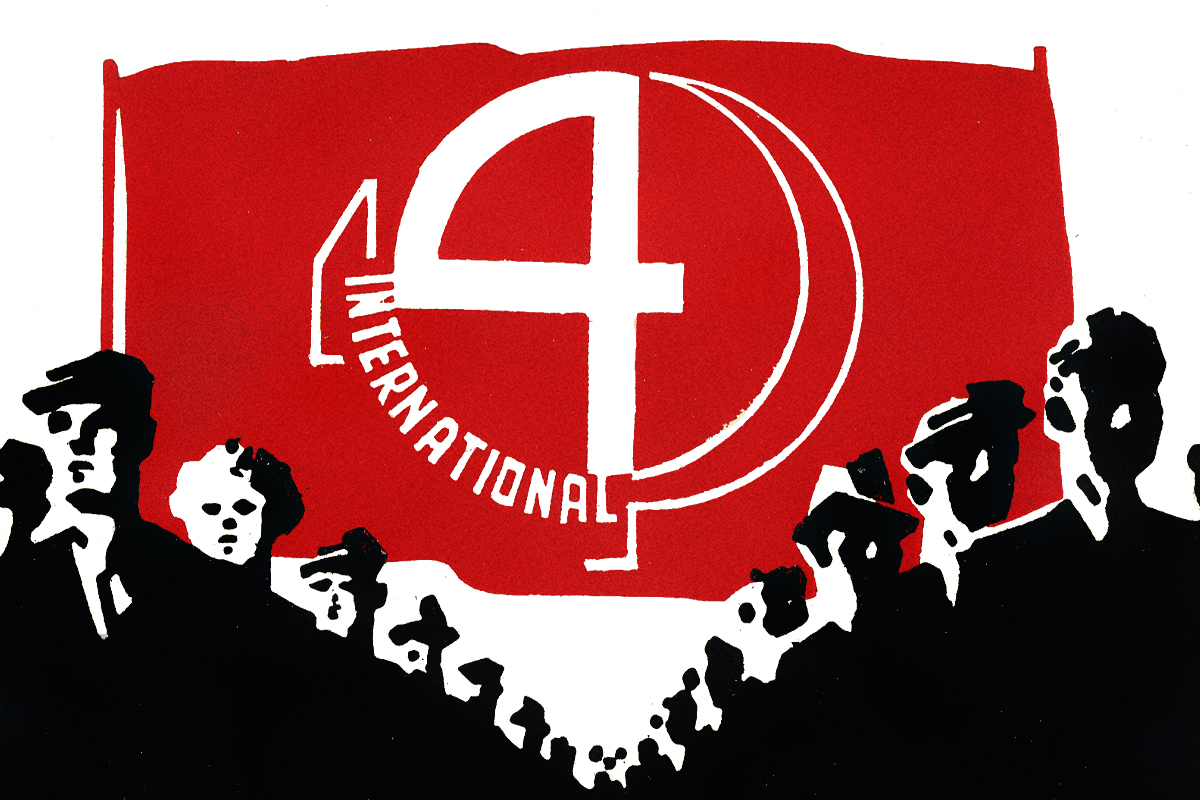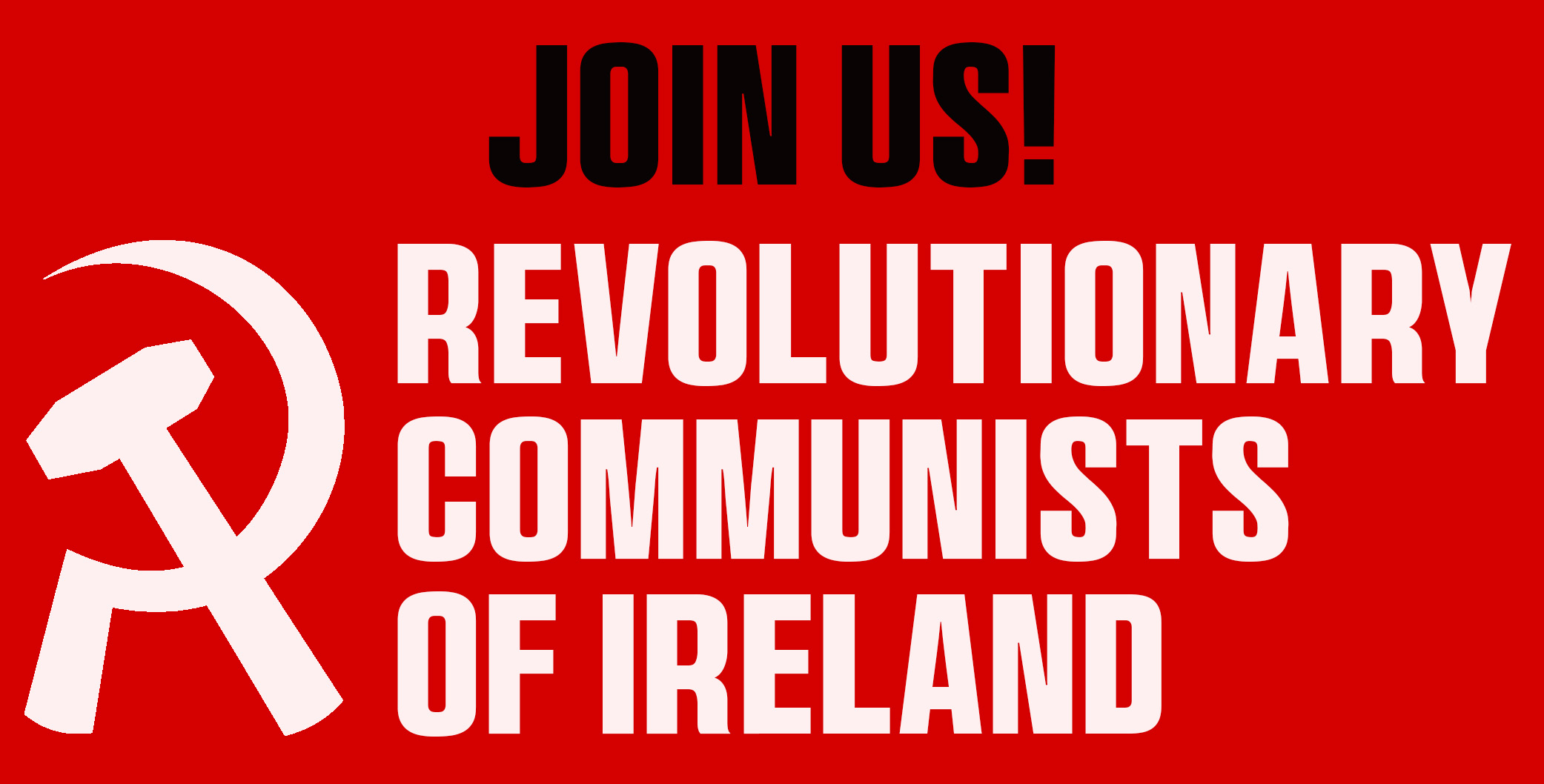The power-sharing deal in the North of Ireland, established with the Good Friday Agreement, has broken down. The old system of rule no longer works, an indication of the pressures that flow from the economic crisis. Gerry Ruddy looks at why and how this has come about.
The partition of Ireland leading to the establishment of the Northern Ireland State did not lead to the hoped for reconciliation between Unionists and Nationalists. Speaking at the opening of the new Northern Ireland Parliament in 1921 King George 5th said:
“I feel assured that you will do your utmost to make it an instrument of happiness and good government for all parts of the community which you represent. I appeal to all Irishmen to pause, to stretch out the hand of forbearance and conciliation, to forgive and to forget, and to join in making for the land which they love a new era of peace, contentment, and goodwill…”
Up until its abolition in 1972 the Government of Northern Ireland, under Unionism’s control, failed to treat the nationalist population with respect, fairness or with equality. There was to be no “era of peace contentment and goodwill.”
Instead, there was a long period of intransigence, bigotry and state violence against the nationalist minority. Any potential of working class unity, whether within the trade unions, in political organisations like the Labour Party, or during anti-poverty riots in the 1930s, was always met by the Unionist establishment with sectarian actions to undermine class solidarity. Thus, sections of the Protestant working class felt that they were marginally better off than the Catholic working class, thanks to “privileged” access to jobs in heavy industry. That both sections of the working class were in poverty and living in poor housing into the late 1960s mattered not to the Unionist elite. So long as the workers were divided then all was well with their world.
The long-established practice of discrimination eventually produced a response. The emergence of the Civil Rights Movement from 1967, which tried in its own way to bridge the sectarian divide, led to Unionism begrudgingly conceding minor reforms whilst its more right-wing members were encouraging the formation of loyalist paramilitary gangs. In the new era it was loyalists who set off the first bombs and killed the first policeman to die in the “troubles”. The subsequent outbreak of violence meant that the British Government, which for fifty years had tolerated the behaviour of the Unionist ruling class in Northern Ireland, finally had to take some responsibility. That response was both stick and carrot.
The stick was the use of armed force to suppress both the Civil Rights Movement, by shooting dead unarmed marchers, and using internment, torture and repression to squash the armed republican resistance that had arisen in response to loyalist pogroms and police and army repression. The purpose of that armed resistance was to undo the partition of Ireland.
The carrot was the establishment of a power sharing local Government or administration that would allow the nationalist middle classes to participate in the running of the state and end discrimination and inequality. However, all attempts failed at a political solution until the armed campaign by Republicans came to an end.
By that stage the armed campaign had partially descended in a squalid sectarian war between Republican and Loyalist groups directed by agents of the British State. Both the British Government and the leadership of the republican struggle recognised that neither side could win. So compromise was essential.
But now the issue was not the ending of partition per se, but the establishment of a power-sharing executive that would allow nationalists to participate in the running of the Northern Ireland State. That meant recognition of the two main traditions, both unionist and nationalist. This was central to the whole peace process. The signing of the Good Friday Agreement in 1998 copper-fastened not only partition but, to all intents and purposes, institutionalised sectarianism within the state structures.
By this stage both Sinn Fein and the DUP were almost overtaking the two main unionist and nationalist parties, the UUP and the SDLP in support and votes So tortuous were the negotiations that they were referred to as the “groundhog days” after the famous Bill Murray film “Groundhog Day.”

Despite all efforts to establish a stable power sharing executive, it was only when what were regarded as the two extremes (Sinn Fein and the DUP) became the majority parties in 2006 that a stable power sharing executive was formed with Ian Paisley and Martin McGuiness in the key leadership positions. For over ten years Martin McGuiness was deputy First Minister working with Paisley and his successors Peter Robinson and Arlene Foster.
However, it was, after Paisley’s departure, a loveless arrangement. The DUP did not engage with either the spirit of the letter of the Good Friday or St Andrews Agreements.
Republicans had shifted their ground considerably. IRA weapons and explosives were decommissioned. Sinn Fein agreed to enter Stormont, a huge shift from the days when their slogan was “Smash Stormont”. They agreed to jointly administer Northern Ireland with a party, the DUP, they regarded as sectarian and anti-Catholic. They signed up to support the newly established police force which replaced the hated RUC, the PSNI, although many of the old police force remained in the new one. For Republicans to agree to administer British rule in the North was such a huge step that it caused splits, walkouts and breakaway IRAs. But the core leadership held the support of the majority of republicans.
Having accepted the new situation, there is absolutely no doubt that Sinn Fein tried to make the power sharing arrangements work. Their Deputy First Minister, (a leading IRA member and well respected among militant republicans), Martin McGuiness twice met the Queen of Britain and made many efforts to reach out to those of a Unionist persuasion, forming close friendships with individuals and clergy from a unionist background.
However, politically there was no response. The DUP acted as if they were still in the days of Unionist Ascendancy (1920-1972). They blocked an Irish Language Act which had been agreed in the St. Andrews Agreement (2006). No agreements could be made around “legacy” issues arising from the troubles, including definitions of a victim and cash for inquests delayed for over 45 years.
On top of that there were a number of major scandals involving the DUP that could have caused major difficulties. One was the Red Sky Scandal in 2010. That was then followed by the Nama controversy and allegations that the then First Minister (DUP) was to financially benefit from the sale of Nama assets in Northern Ireland. However, neither of these two scandals were enough to bring down the Power Sharing Executive.
It was the issue of austerity that almost brought proceedings to a halt. The British government’s austerity programme, including welfare reform (the bedroom tax) was to be applied to the North, but Sinn Fein opposed introducing it because of their opposition to austerity in the South where they were gaining support and votes. They did not want to impose austerity in the North while standing against it in the South. There was a stand-off for a period of months before Sinn Fein agreed that powers on welfare reform be handed back to Westminster from the Assembly.
In the May 2016 Assembly elections both the DUP and Sinn Fein strengthened their positions, with the DUP winning 38 seats and Sinn Fein 28. They, with the support of an independent unionist who took the job of Justice Minister (Unionist could not trust a nationalist to be in charge of justice), formed the new administration. It is worth noting that no nationalist has ever held the Justice Ministry. Law and order issues have always been under the control of either Unionist or British ministers, because it is a key weapon in the struggle against militant republicanism. Despite almost 20 years from the Good Friday Agreement and the so-called equal respect for the two main traditions, the Prison Service in Northern Ireland denies Republican prisoners in Maghaberry Jail access to Irish language or culture. No Irish symbols are allowed.

In September 2016 Arlene Foster, the First Minister, was photographed alongside the leader of the UDA (a Loyalist Paramilitary armed organisation) Dee Stitt in East Belfast following the awarding of £1.7 million to a front community organisation of the UDA which Stitt chaired. That money came from a controversial £80 million Social Investment Fund. Essentially this was a result of an agreement between the DUP and Sinn Fein to fund those associated with violence in the past and move them into community activity. Needless to say, it was a control mechanism to reward their supporters and tighten control within their “community” – a classic example of sectarian control. Despite a police statement that Stitt was an active member of the UDA, an illegal organisation, calls for his resignation fell on deaf ears. He is still the chair.
During all this, Sinn Fein, not wanting to destabilise the institutions, was relaxed about this and other issues arising. Both parties claimed to be working well together. Indeed, to mark their first six months in office the Leaders of both Sinn Fein and the DUP in the Northern Ireland Assembly issued a joint statement in which they said:
“Day by day, slowly but surely, politics here is changing. And it’s for the better. The focus is increasingly now on policies and delivery – on finding the best ways to make people’s lives better. The seeds of this change can be found in the Fresh Start Agreement a year ago and the Assembly election some six months later. Our two parties – along with Claire Sugden as Justice Minister – are now in an Executive facing in the same direction. We made promises to voters that we will keep – taking on the heavy responsibilities that come with elected office, governing in their best interests, tackling head-on the tough decisions.”
But all these fine sentiments came to nothing. Within two weeks the Deputy First Minister Martin McGuiness, strong advocate for devolution pulled out of a visit to China. He was seriously ill, although few knew. Nationalist anger was boiling over against Arlene Foster’s response to the Renewable Heat Incentive scandal for which she bore most responsibility. She had been the Minister who had introduced it. At least £490 million would have to be paid out over 20 years to many businesses and individuals (many of whom were associated with the DUP,) so badly managed was the scheme. She was advised to step aside by McGuiness while a short enquiry was held. But she refused, igniting nationalist anger.
Then a unionist minister withdrew funding for an Irish language project on Christmas Eve while adding more funds to a project to modernise Orange Halls regarded by many as a sectarian and anti-Catholic organisation. Furthermore, Foster then said there would never be an Irish Language Act, something which had been agreed by the British government in the St. Andrews Agreement. This was the culmination of a long series of anti-Irish language comments by leading figures in the DUP. Some sections of the Irish language lobby were critical of Sinn Fein’s previously weak response to these comments.

However, Sinn Fein’s core leadership group is well versed in reading the political temperature, especially of its grassroots base. On Saturday, the 7th of January 2017, they called a meeting of their activists in the Felon Clubs in West Belfast where Gerry Adams made a public speech while the Press were there. After the press left a private meeting was called and “the loudest cheer was in response to a call to “bring the institutions down now.”
It was clear that the grassroots had had enough of Stormont. Within two days a very frail and weak Martin McGuiness had resigned, bringing down the Stormont institutions.
The subsequent elections held on the 2nd of March 2017 saw a fundamental shift in the political landscape. The new Assembly had only ninety seats, as opposed to the 108 of the previous Assembly. So there were always going to be some losses for the parties. However, it was a disaster for the DUP. Their total of 28 seats was only one more than Sinn Fein. Unionism no longer had a majority in the new Assembly. Nationalist had 39 seats; Unionists had 40, with 2 Greens and one PBP; and the moderate and pro-unionist Alliance Party had 8.
While both the DUP and Sinn Fein’s total vote had gone up, it was clear that nationalists had been energised by the election. They had responded to the disrespect shown by the DUP and flocked to the polling stations in unprecedented numbers.
For Unionism that election result was a bitter blow. They had held the upper hand from the foundation of the state, using every election since 1921 to raise sectarian tensions, thus ensuring a large turnout from the Protestant/Unionist/Loyalist population. Now they had to share power with nationalists and no longer had a majority of seats in a local administration.
On top of that the vote last June in the referendum on future British membership of the EU has had a profound impact on the whole of the UK. The overall vote for Brexit, despite majorities in Scotland and Northern Ireland for retaining membership of the European Union, put the issue of independence for both these areas back on the political agenda. Sinn Fein has been quick to call for a border poll, both as a way to trump an older dissident republican call for such a poll and also to reassert their republican credentials for a united Ireland.
Of course, the reality is that such a poll would be defeated in the short term, as there is not enough support for it in either part of Ireland.
Brexit could very well mean border controls being re-established between the Republic and the North. For nationalists this would be against the Good Friday Agreement and was a factor in the vote for Sinn Fein. Now many parties outside of Unionism are calling for Northern Ireland to have a separate deal with the EU.
So, the Northern Ireland political process is in crisis. Remarkably, after the election the three-week period of talks was conducted in a shambolic way. There were no agendas, no round table talks and little agreement. No longer did Sinn Fein talk about the RHI scandal, but raised issues agreed under previous talks but not implemented: issues such as the Irish language, definitions of victims during the “troubles”, the failures to hold inquests, equality and equal respect for all traditions.
When the DUP failed to turn up for talks on a Sunday, the second last day of talks, Sinn Fein once again pulled the plug on a new power sharing administration. This should have led to yet another election. However, the electorate has already gone twice to the polls in a nine-month period. So, James Brokenshire, the British Secretary of State for Northern Ireland, announced that instead of elections there would be more talks for a limited period and that if no agreement could be reached then Direct Rule would be considered.
In the meantime, the Northern Ireland Civil Service has responsibility for introducing a budget. They have control over 75% of the Annual subvention from Westminster until the situation can be resolved.
Now the issues which did not dominate the political debate during this crisis were social and economic questions. And yet these issues dominate the day to day lives of ordinary working class people. For at least the past nine years, austerity has been the main, if not the only, weapon that the British government has used to control public spending.
Sinn Fein say they oppose austerity. However, just over a year ago a package of austerity reforms was introduced and accepted by the main parties, together with the Irish Congress of Trade Unions, in order to keep the Assembly running. That package included the loss of 20,000 public sector jobs, continued privatisation and, of course, welfare cuts. When the DUP and Sinn Fein put forward “The Draft Programme for Government (PfG) Framework 2016-21” it was rightly criticised by trade unions who: “warned against the trajectory and ideological underpinning of public finance elements of the ‘deal’ (public sector job losses, sale of public assets, bogus claims of a £2bn stimulus package that in reality included very little ‘new’ money, etc.).”
There is no doubt that the public sector in Northern Ireland is under great strain. The health service is buckling under the pressure. Doctors’ surgeries have closed. A&E queues are longer and longer, and beds fill up the corridors of our hospitals. Class sizes in schools have increased, as school budgets are lessened. Mental illness levels have soared within the public service.
Currently without an administration, and with no budget agreed, and while the political parties hold yet another round of talks due to end on April 14, the Civil Service Heads are announcing more cuts in public administration. Hospitals, school, youth centres all are affected and notices are being handed out for job losses just as the welfare reforms agreed over a year ago start to kick in. As well as this, public sector workers are restricted to 1% pay increases while inflation has crept up to 2.3% and is predicted to hit 3% later in the year.
No matter what the outcome of the talks at Stormont – no matter whether a new power sharing executive is set up to run Stormont or Direct Rule from Westminster is re-introduced over the next few weeks – there will be no improvement in the lives of the vast majority of the people living in the North. Public services will diminish, poverty will spread, there will be fewer homes built for working people, the gap between rich and poor will widen, and politicians will still use sectarianism to keep working people divided and demoralised.
Socialists and Marxists have always maintained that the only solution is the establishment of a socialist republic in Ireland. We are as far from that as we were before the partition of the island. Sadly the forces for change are weak, divided and with no clear strategy for winning workers to socialism. Neither the ballot box nor the gun can win workers to socialism. Only the unleashing of the power of the working class can do that. Marxists and socialists have to continue to agitate, educate and win the masses to the ideas of socialism. There are no shortcuts to that.




